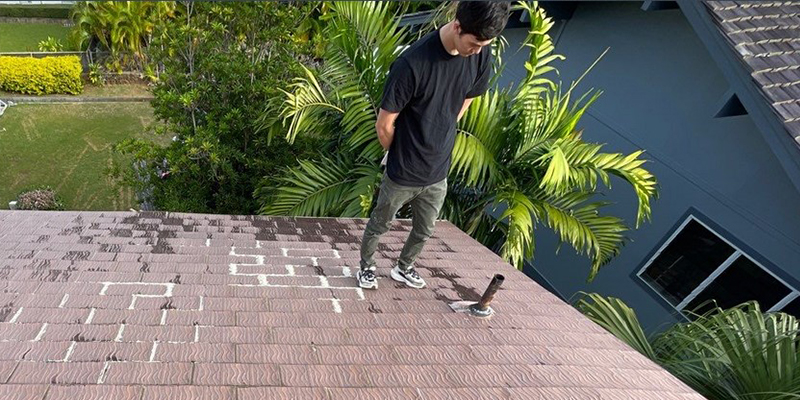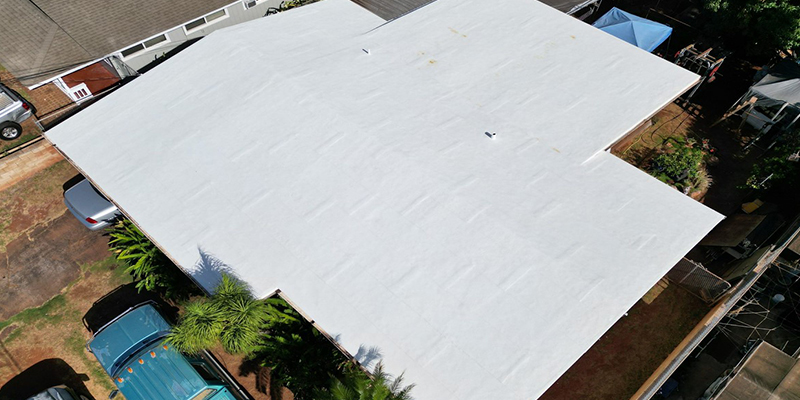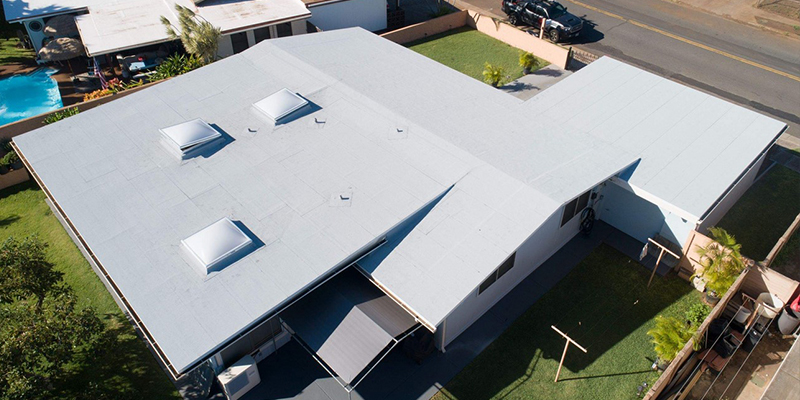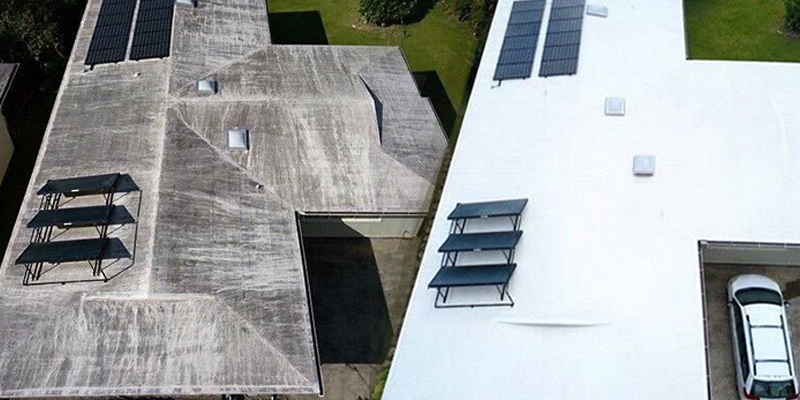When it comes to maintaining or upgrading your roof, you have two main options: roof coating system or replacement. Both have their own set of pros and cons, and choosing the right option for your building can be a difficult decision.
Coating is recommended if your roof has no active leaks or trapped moisture. A roof replacement is recommended if your roof currently has wood rot, moisture, or is in poor conditions beyond repair.
In this post, we'll break down the key differences between roof coating vs replacement and help you determine which is the best choice for your property. By the end of this post, you'll have a solid understanding of the costs, durability, energy efficiency, and other factors that play a role in this important decision.
Factors to Consider When Choosing to Coat or Replace Your Flat Roof
-
Your budget for your project.
-
Your roofing contractor.
-
The pros and cons of each option
-
Performance of each roofing system
-
Energy Efficiency
Cost Comparison of Coating and Replacing an Existing Roof
One of the first things most home or business owners consider when it comes to roofing is the cost.
Initial Cost
When it comes to cost, installing a roof coating system is usually the more affordable option. Roof coating systems can typically be installed for a fraction of the cost of a full roof replacement.
However, it's important to note that the cost of a coating can vary depending on the type of coating used and the size and condition of your roof.
Long-term Cost Savings
While the initial cost of a coating may be less than a replacement, it's important to consider the long-term cost savings of each option.
A well-maintained coated roof can last up to 10-15 years, while a replacement roof typically lasts 20-25 years. While a replacement may have a longer lifespan, the cost of a replacement every 20-25 years can add up over time.
Factors that can Affect the Cost
It's important to note that there are a number of factors that can affect the cost of both coating and replacement.
-
Type of roofing material
-
Size of your roof
-
Condition of your roof
A professional roofing contractor will be able to provide you with a more accurate details based on the specific details of your roof.

Professional Inspection and Evaluation
When it comes to making a decision about your roof, it's important to have a professional inspection and evaluation. A professional roofing contractor can help you to determine the best option for your project.
Importance of Professional Inspection
A professional inspection can help you to identify any potential problems with your roof, such as leaks or damage. This can help you to make a more informed decision about whether a coating or replacement is the best option for your building.
Impact of a Professional Evaluation on the Final Decision
A professional evaluation can have a significant impact on the final decision about whether to coat or replace your flat roof. A professional inspector will be able to provide you with an accurate estimate for each option, as well as the potential benefits and drawbacks of each option.
Roof Coating vs Replacing Your Existing Roof
As you know, there are two main options: roof coating or a roof replacement. Both have their own set of pros and cons, and the decision ultimately depends on the condition of your roof and your budget. Let's take a closer look at the differences between roof coating and roof replacement and help you determine which option is best for your home or business.
Benefits of a Roof Coating System:
-
Cost-effective: Roof coating is typically less expensive than a full replacement. It's a great way to extend the life of your existing roof and delay the need for a full replacement.
-
Energy-efficient: A roof coating can improve the energy efficiency of your home or business by reflecting the sun's rays, which can help lower cooling costs in the summer.
-
Easy to apply: Roof coatings are easy to apply and can be done in a relatively short amount of time.
-
Variety of options: There are a variety of roof coatings available, including acrylic and silicone each with their own set of benefits.
Cons of Roof Coating:
-
Limited lifespan: Roof coatings typically have a shorter lifespan than a full replacement, typically between 10-15 years.
-
Not suitable for all roof types: Some roof types, such as those with extensive damage or leaks, may not be suitable for a coating.
-
May not improve the appearance: While a coating can improve the energy efficiency of your roof, it may not improve the overall appearance of your roof.
Benefits of a Roof Replacement:
-
Longer lifespan: A full roof replacement will typically last between 20-25 years, depending on the type of roofing material used.
-
Improved appearance: A new roof can significantly improve the overall appearance of your home or business.
-
Better insulation: New roofing materials will provide better insulation and improve energy efficiency.
-
Add value to your property: A new roof can increase the value of your property, making it more attractive to potential buyers.
Cons of a Roof Replacement:
-
Costly: A full roof replacement can be costly and may not be within everyone's budget.
-
Time-consuming: A full roof replacement can take several days or even weeks to complete, depending on the size and complexity of the job.
-
Disruptive: The process of a full roof replacement can be disruptive, especially if the work is being done on your home or business.
Durability and Performance
Another important factor to consider when choosing between coating and replacement is the durability and longevity of each option.

How Long Do Roof Coatings Last?
The first factor to consider is the type of roof coating being used. There are a variety of roof coating options available, each with their own lifespan. Acrylic coatings, for example, typically last between 5-10 years, while silicone roof coatings can last up to 15 years. elastomeric coatings (which are typically used on commercial buildings) can last up to 25 years. It's important to note that these are general estimates and the actual lifespan of a coating can vary depending on the specific product and the manufacturer's warranty.
Impact of Weather and External Factors
The environment also plays a role in the lifespan of a roof coating. Exposure to extreme temperatures, UV rays, and heavy rainfall can all shorten the lifespan of a roof coating. In areas with extreme weather conditions, it's important to choose a coating that is specifically designed to withstand those conditions.

How Long Can a Newly Installed Roof Last?
If replacing your flat roof, a modified bitumen roofing system will most likely be used to replace your roof. A newly installed modified bitumen roof system can last between 15-20 years with proper maintenance. However, if the roof is installed correctly and made with high-quality materials, it can last up to 25 years or more. The key to a longer lifespan is the quality of the installation, the materials used and the regular maintenance.
One of the most important factors in determining the lifespan of a modified bitumen roof is the quality of the materials used. The quality of the asphalt and reinforcing fabric used in the roof system can greatly impact the durability and longevity of the roof.
Choosing a high-quality product and a reputable manufacturer (we recommend Polyglass) as it's essential for ensuring a longer lifespan.

Proper Maintenance Can Improve the Lifespan of Your Roof
Proper maintenance is crucial to ensuring the longevity of your roof, whether it's coated or newly replaced.
Roof maintenance is an important aspect of home and building ownership that is often overlooked. A properly maintained roof not only extends its lifespan but also helps to prevent costly repairs down the road.
First and foremost, regular roof maintenance helps to identify small issues before they become bigger problems. A professional roofing contractor can spot potential issues such as leaks, compromised seams, or damage caused by weather or debris. By catching these issues early, homeowners and business owners can undergo a minor repair to extend the lifespan of their roof.
If you're interested in roof maintenance, a professional roofing contractor can help you develop a maintenance plan that will keep your roof in top condition for as long as possible.
Energy Efficiency
Energy efficiency is another important factor to consider when choosing between coating and replacement.
Impact on Energy Efficiency
A roof coating can help improve the energy efficiency of your building by reflecting more of the sun's rays and keeping your building cooler.
This can lead to significant energy savings over time, particularly in climates where air conditioning is used frequently. On the other hand, a flat roof replacement may also offer energy-efficient options, such as cool roofing materials, which can help to reflect the sun's rays and keep your building cooler.
Benefits of Energy-Efficient Roof Coating Options
There are a variety of energy-efficient roof coating options available on the market. Some coatings are specifically designed to reflect more of the sun's rays, while others are designed to be more thermally efficient. These coatings can help to reduce your energy costs and improve the overall energy efficiency of your building.
The Role of Roofing Materials
The type of roofing material used can also play a role in the energy efficiency of your building. For example, metal roofs are highly reflective and can help to keep your building cooler, while dark-colored roofs can absorb more heat and make your building warmer.
It's important to consider the type of roofing material when choosing between coating and replacement, as well as the energy-efficient options available for that material.
Final Thoughts
In conclusion, when deciding between roof coating and replacement, it's important to take into consideration your budget, the experience of your roofing contractor, and the pros and cons of each option.
It's also crucial to evaluate the performance of each roofing system and its energy efficiency. A roof coating can be a cost-effective solution that can extend the life of your roof, while a replacement can provide a fresh start with a new roofing system.
It's recommended to work with a professional roofing contractor who can provide an accurate assessment of your roof and offer the best solution based on your specific needs and budget. Ultimately, the decision should be based on a careful consideration of all factors, and should be tailored to your individual needs.

